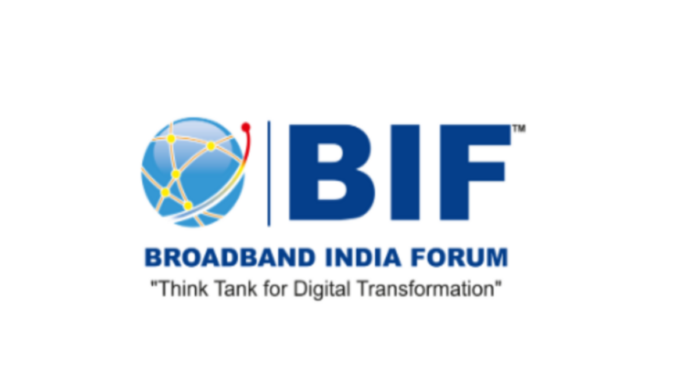The Broadband India Forum (BIF) is dedicated to its mission of improving India’s broadband ecosystem as a preeminent independent think-tank and policy forum for Digital Communications in the country. According to Broadband India Forum response to TRAI’s consultation paper on the regulatory framework for over-the-top (OTT) communication services and the selective banning of OTT services, the existing IT Act, 2000 and other associated acts and rules adequately regulate OTTs.
The idea that the existing regulatory framework has promoted a healthy app economy development in India is the basis for Broadband India Forum recommendation. India has one of the highest yearly app download rates in the world. The current competitive environment might be disrupted by the introduction of new regulatory frameworks, putting at risk consumer benefits and innovation.
According to Broadband India Forum, current laws adequately handle the regulatory, economic, security, privacy, safety, and consumer grievance elements of OTT services. These laws include the IT Act and the Consumer Protection Act of 2019. In addition, government agencies already have the authority to conduct authorized interception according to Sections 69, 69A, and 69B of the IT Act. Furthermore, Broadband India Forum is completely against the selective blocking of OTT services since they know it would not stand up to constitutional scrutiny.
By underlining that OTTs operate at the application layer while TSPs provide the underlying network infrastructure, Broadband India Forum helps to clarify the important contrast between these two types of service providers. TSPs have exclusive rights, such as the right to an uncluttered spectrum, the right of way, a separate numbering scheme, and the ability to connect to other networks, whereas OTTs do not. Since OTT services and TSP services are so different in fundamental ways, it follows that they do not compete in the same market.
President T V Ramachandran, Broadband India Forum, commented on the same” Over-the-top (OTT) services have greatly increased people’s access to digital tools and amenities, which has improved quality of life and given them more agency by increasing their capacity to earn a living and advance in society. The positive benefits on the economy have been enormous, helping the country overall. We trust that the government and the regulator will let market forces guide development in this critical area. The level of competition between TSPs is unrestricted, and OTTs should not be disadvantaged.”
Consumers utilize telecom services mainly for phone and SMS, but OTT apps provide them with rich interactive content and a variety of functions. Further, due to existing duopolies in the telecommunications industry, consumers have fewer options when switching networks. In contrast, services on the application layer, such as OTTs, foster a highly competitive environment with low entry barriers, often providing free options to customers and allowing the use of multiple services.
The International Telecommunication Union (ITU) and numerous EU countries are cited as examples by Broadband India Forum as having acknowledged the distinct character of OTT communication apps in comparison to conventional telecommunication services. Recognizing that OTTs and TSPs are not interchangeable, they have chosen for a separate strategy to regulation of the two.
Broadband India Forum cites “as per abundant case laws associated with Art. 14 of the Constitution, unequals are not only permitted to be treated unequally but also have to be so mandatorily” to support its claim that OTTs and Telecom Services are distinct. Equal treatment for unequals is still inequality, after all. It is completely unreasonable, arbitrary, unconstitutional, and a violation of Art.14 to equate the two.
OTTs and TSPs, Broadband India Forum notes, “engender benefits for each other in a symbiotic, complementary, and mutually reinforcing manner,” citing research from the Telecom Regulatory Authority of India and the International Telecommunication Union. This recognition highlights the already established and effective collaborative framework within the industry.

